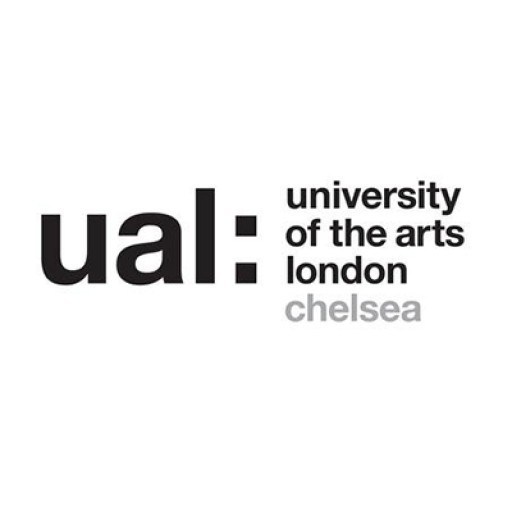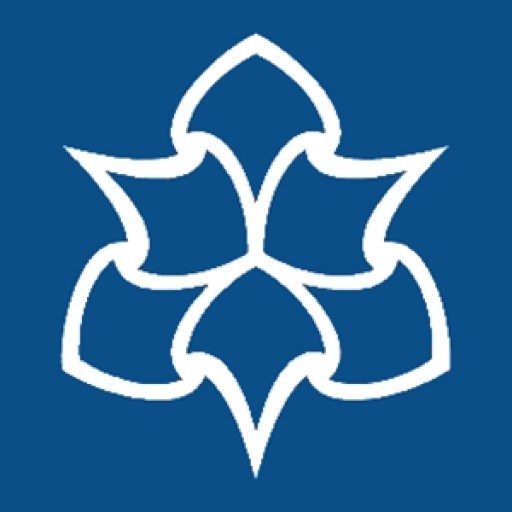The Interior and Spatial Design program at Chelsea College of Arts offers a comprehensive and innovative approach to understanding and shaping interior environments. This course is designed to equip students with the creative, technical, and practical skills necessary to develop inspiring and functional interior spaces across a variety of contexts, including residential, commercial, cultural, and public environments. Throughout the program, students engage with a wide range of design strategies, focusing on spatial planning, materiality, lighting, and sustainability to create thoughtful and engaging interiors. The curriculum emphasizes both theoretical understanding and practical application, encouraging students to develop a critical awareness of the social, cultural, and environmental implications of their design work. Students gain hands-on experience through studio-based projects, workshops, and industry collaborations, enabling them to explore innovative concepts and refine their individual design language. The program also fosters a strong awareness of contemporary trends and innovations in interior and spatial design, preparing graduates for successful careers in design consultancies, architectural practices, set design, and other creative industries. Located within the culturally rich environment of Chelsea College of Arts, the course benefits from exposure to a diverse community of artists, designers, and researchers, promoting a vibrant learning atmosphere. By the end of the programme, students are expected to develop a compelling portfolio of work that demonstrates their ability to conceive and execute complex design projects, addressing both aesthetic qualities and functional requirements. Graduates leave the program ready to contribute creatively and professionally to the evolving field of interior and spatial design, equipped with the skills, knowledge, and confidence to make a significant impact in the industry.
The Interior and Spatial Design program at Chelsea College of Arts offers a comprehensive and innovative approach to the study of interior environments and spatial design. This programme is designed to equip students with the creative, technical, and analytical skills necessary to transform interior spaces and architectural environments through thoughtful design. Throughout the course, students engage with a diverse range of design methodologies, exploring both conceptual and practical aspects of interior and spatial design. The curriculum emphasizes the development of a strong aesthetic sensibility combined with an understanding of spatial dynamics, materiality, and sustainability principles.
Students are encouraged to develop a critical understanding of how interior spaces can influence human behavior and well-being, while also considering the contextual, cultural, and social factors that shape design decisions. The programme covers a variety of contemporary issues, including adaptive reuse, environmental performance, and innovative material application. Participants have access to state-of-the-art workshops, digital fabrication tools, and industry-standard software, enabling them to produce compelling visualizations, models, and presentations.
The course promotes a collaborative learning environment where students work on individual projects as well as group initiatives, fostering teamwork and professional communication skills. Guest lectures, workshops, and site visits provide real-world insights and opportunities to engage with industry professionals. The programme prepares graduates for careers in interior design studios, architectural practices, exhibition design, set design, and other related fields. It also encourages entrepreneurial thinking and supports students in developing their own design practices.
By the end of the programme, students will have built a robust portfolio demonstrating their ability to conceive, develop, and realize innovative interior and spatial concepts. The programme culminates in a major project that showcases their skills, creativity, and understanding of the discipline, positioning graduates well for dynamic careers in the creative industries. Overall, the Interior and Spatial Design programme at Chelsea College of Arts offers a rigorous, inspiring, and practical education that prepares students to shape the future of interior environments and spatial experiences worldwide.
Program requirements for the Interior and Spatial Design undergraduate degree at Chelsea College of Arts encompass a comprehensive set of prerequisites and selection criteria designed to identify talented and motivated applicants. Prospective students are expected to demonstrate a strong portfolio showcasing their creative abilities, visual skills, and understanding of spatial concepts. A minimum of A-levels or equivalent qualifications is required, with preferable subjects including art, design, or related disciplines, though specific grade requirements may vary annually. All applicants must submit a completed application form through UCAS, along with a personal statement that articulates their interest in interior and spatial design, creative process, and career aspirations. Evidence of prior experience or relevant coursework in design, architecture, or related fields can strengthen an application but is not mandatory. International students, similarly, should provide evidence of English language proficiency, such as IELTS or equivalent scores, unless they are from a country where English is the native language. The selection process includes a review of the portfolio, which should include a range of visual and conceptual work demonstrating originality, analytical thinking, and technical skills. Shortlisted candidates are usually invited for an interview, where they may be asked to discuss their portfolio, artistic practice, and understanding of spatial design principles. Additionally, applicants may undergo a design task or test to assess their problem-solving abilities and practical skills. The program also values applicants with a demonstrated interest in contemporary interior and spatial issues, sustainability, andInnovative approaches. Successful applicants meet the program's criteria for creative potential, academic ability, and motivation to pursue a career in interior and spatial design. Moreover, certain prerequisites regarding prior technical knowledge or software skills, such as familiarity with AutoCAD, SketchUp, or Adobe Creative Suite, can be beneficial but are not strictly mandatory for entry. The course strives to cultivate diverse talents and backgrounds, fostering an inclusive community of aspiring interior and spatial designers dedicated to innovative and meaningful work in the built environment.
The financing of the Interior and Spatial Design program at Chelsea College of Arts is primarily based on tuition fees paid by students, which vary depending on the student's residency status and specific course requirements. For domestic (UK) students, the tuition fee is typically set at a standard rate established by the UK government, which often is around £9,250 per year for full-time undergraduate courses, though this amount can fluctuate annually. International students are subject to higher fees, which can range from approximately £17,000 to over £20,000 per year, depending on the program specifics and the year of study.
In addition to tuition fees, students are encouraged to seek additional funding sources such as government loans, scholarships, and bursaries designed for both domestic and international students. UK students may be eligible for student loans through the Student Loans Company, which allows them to defer tuition payments and repay based on income after graduation. International students often need to secure scholarships or sponsorships that cover part or all of their tuition fees and living expenses, although opportunities are more limited compared to domestic students.
Chelsea College of Arts also offers various scholarships, grants, and bursaries aimed at supporting students with exceptional talent or financial need. These awards can significantly reduce the financial burden, covering a portion of tuition fees or offering stipends for living costs. Funding applications generally require students to demonstrate academic excellence, a compelling personal statement, and sometimes portfolio submissions, depending on the scholarship criteria.
Students should also consider additional costs related to their studies, such as materials, supplies, studio fees, accommodation, and living expenses. The college recommends budget planning to account for these essential costs, which can add several thousand pounds annually.
For international students, visa fees and health insurance (such as the UK's Immigration Health Surcharge) are additional expenses that need to be considered as part of the overall financing plan. The college's financial aid office offers guidance and support to help applicants understand the full scope of costs and available financial assistance.
Overall, financing a degree in Interior and Spatial Design at Chelsea College of Arts involves a combination of personal funding, government or private financial aid, scholarships, and potential part-time work opportunities. Prospective students are advised to explore all available options early in their application process to secure adequate funding for the duration of their studies. The college strives to make the education accessible by providing comprehensive financial support information and advising students on the best ways to finance their education, ensuring that talented individuals are not deterred by economic barriers.
The Interior and Spatial Design program at Chelsea College of Arts is a comprehensive course that prepares students for a versatile career in the design industry. This programme emphasizes the development of creative, technical, and contextual skills necessary to transform interior spaces and environments. Students engage with a diverse range of projects that explore the intersection of functionality, aesthetics, and sustainability, fostering innovative approaches to spatial design. The curriculum covers fundamental areas such as design principles, materiality, lighting, and ergonomics, alongside advanced topics including digital visualization, environmental psychology, and sustainable practices. Students are encouraged to experiment with different scales and contexts, from small-scale interior spaces to larger architectural environments. The course also emphasizes research skills, critical thinking, and professional practice, ensuring graduates are well-equipped to enter a competitive industry. Throughout the programme, students benefit from the college’s location in London, gaining exposure to an influential design scene and numerous opportunities for internships and collaborations with industry professionals. The programme culminates in a final design project that integrates technical knowledge, conceptual thinking, and practical skills, preparing graduates for careers as interior designers, spatial designers, and consultants, or for further study in related fields. The Chelsea College of Arts’s strategic focus on innovative and sustainable design practices underpins the ethos of the course, fostering an environment of experimentation and creative exploration. The program fosters an inclusive and collaborative learning community, encouraging students to develop their individual voice and build a professional portfolio. Facilities at Chelsea College include dedicated workshops, labs, and digital studios, ensuring students have access to state-of-the-art tools and resources. Alumni of the programme have gone on to work with leading design studios, architecture firms, and cultural institutions, demonstrating the programme’s role in shaping influential professionals in the field.








